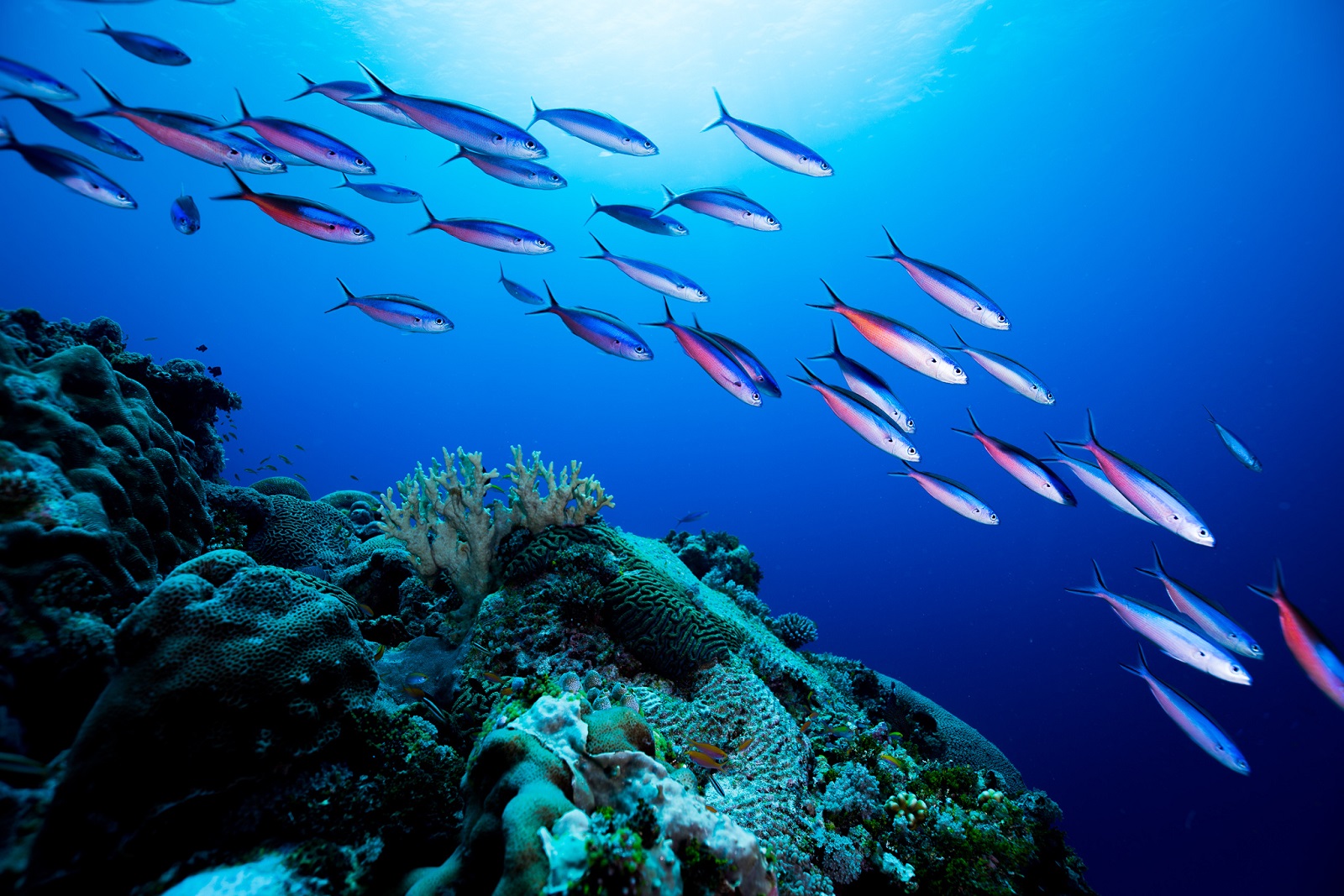ECONOMIC
EFFECT
EFFECT
WWF research found that if the ocean were a country it would be the world's seventh largest economy - worth at least US$2.5 trillion a year. And across the Gulf, millions rely on it for livelihoods which could be lost if we don't change. For example, in the UAE any industries - such as fishing and tourism rely on the ocean. So any impact on marine health could severely impact revenue.
DAMAGING THE
SEA BALANCE
SEA BALANCE
The sea is also a delicate balance of the ecosystems - such as coral reefs home to a quarter of all marine species. They support fish, that in turn feed predators - so if one part is affected, it impacts elsewhere. For example, without sharks, smaller fish overpopulate and harm the reefs. Bleaching is increasing. Fewer coral reefs could impact the entire food chain, the global economy and even Earth's resilience to climate change.
ACIDIFICATION OF
THE OCEANS
THE OCEANS
The oceans absorb a huge amount of CO2 - about a quarter of that which humans produce by burning fossil fuels. However, it makes the water more acidic, affecting things such as the strength of shells and coral skeletons - potentially playing havoc with the food chain.
UNSUSTAINABLE
FISHING PRACTICES
FISHING PRACTICES
An increase in the human population and the popularity of the seafood is decimating global fish stocks, some by more than 50% since 1970. Other endangered marine creatures - such as dugongs and turtles - are being killed by discarded fishing nets (called 'ghost fishing') and being caught by accident (called 'by-catch').




